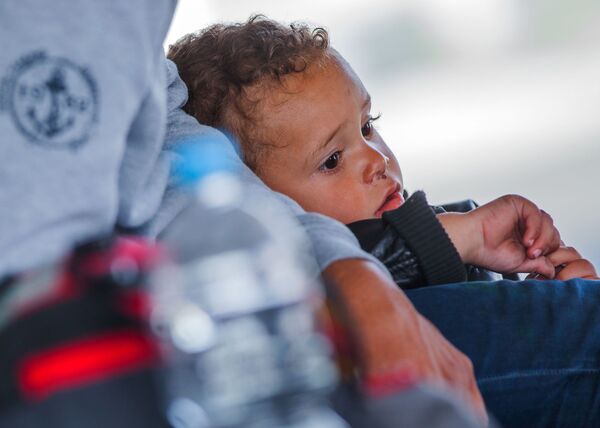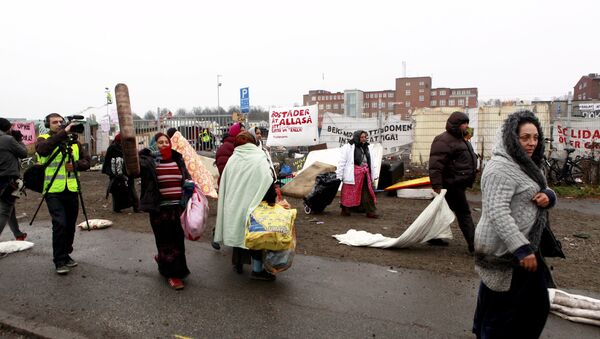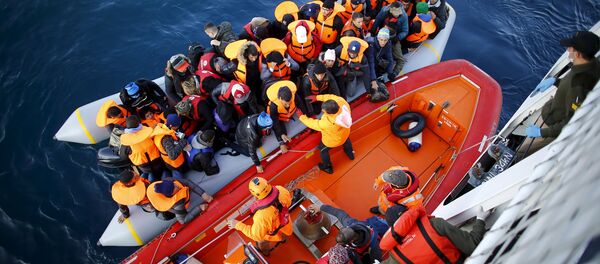"[We want] better order at the borders in an unsustainable situation, so that those who have the possibility to seek asylum in Sweden also can exercise that right," Batra told Swedish Radio News.
The Swedish army has now been called in to help with the crisis. The country's immigration agency spokesman Fredrik Bengtsson said:
"We don't have any more space. For the time being, all of these are finished as well, so for the last three or four nights we've had people sleeping in our [non-residential] centers across the country. Right now we're just looking for people to have a roof over their heads."
Like Germany, Sweden was originally generous in welcoming genuine refugees from war zones — especially Syrians — but the number of asylum claims has now topped 10,000 per week. The calls for border controls is a further breach of the Schengen agreement for open borders and the freedom of movement of people around the EU — a central pillar of the union.
Anti-immigrant Sweden Democrats giving refugees in Lesbos leaflets warning not to come to Sweden (HT @dagensnyheter) pic.twitter.com/PGQPZGWl1Q
— ChristianChristensen (@ChrChristensen) November 9, 2015
Germany introduced temporary border controls with Austria in September and October. Meanwhile, Hungary built a 175-km (109M) razor-wire fence along its border with Serbia and another along its border with Croatia before announcing the complete closure of that border to migrants. Slovenia blocked transit from Croatia in September.
EU Rebate
The Moderate Party leadership are calling for Sweden to get a rebate on the EU-membership fee, as compensation for taking in so many asylum seekers. The party also says that refugees who were registered in other EU countries should be sent back to those states.

Sweden is struggling to cope with the number of refugees and has applied for emergency aid from the EU. "The situation is very, very strained," Employment Minister Ylva Johansson told reporters.
"We have… decided to instruct the Swedish Migration Agency to apply for EU funding, emergency assistance, from the Asylum, Migration and Integration Fund."
Meanwhile, a poll for the Svenska Dagbladet newspaper, found 41 percent of respondents said Sweden should grant fewer residency permits to refugees compared to just 29 percent in September.
"When we polled opinion in September, the developments and the debate were completely different. Today the prime minister (Stefan Löfven) is asking to redistribute (in the European Union) the refugees who have come here," said Toivo Sjören, head of polling at Sifo.



